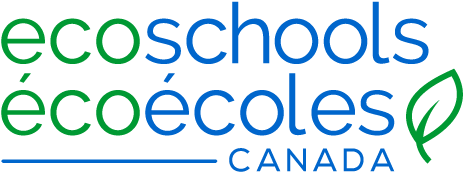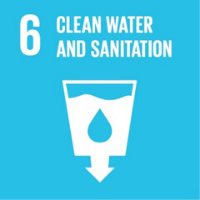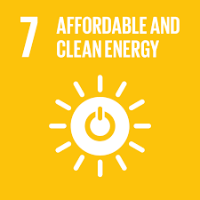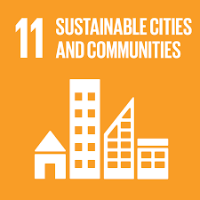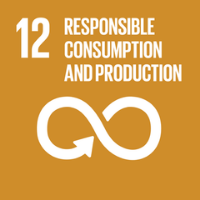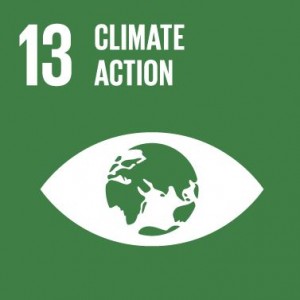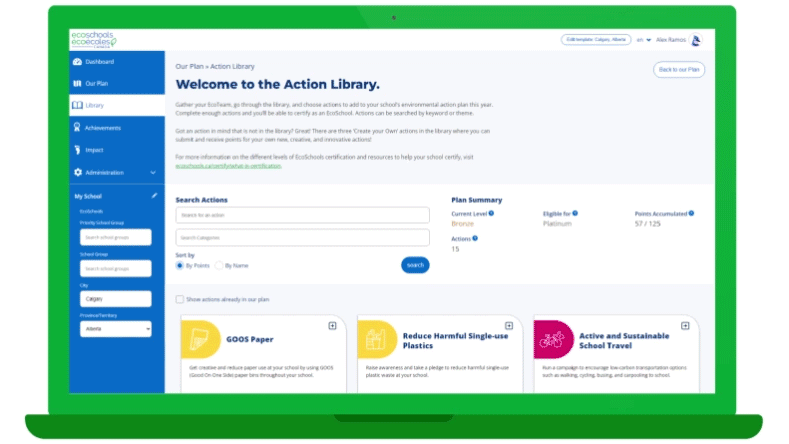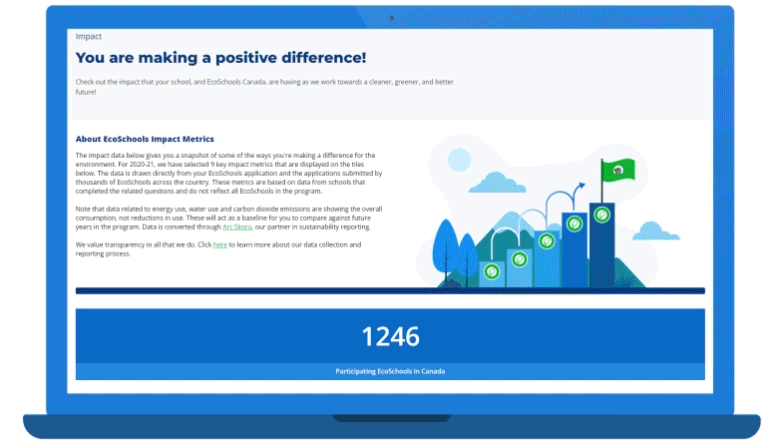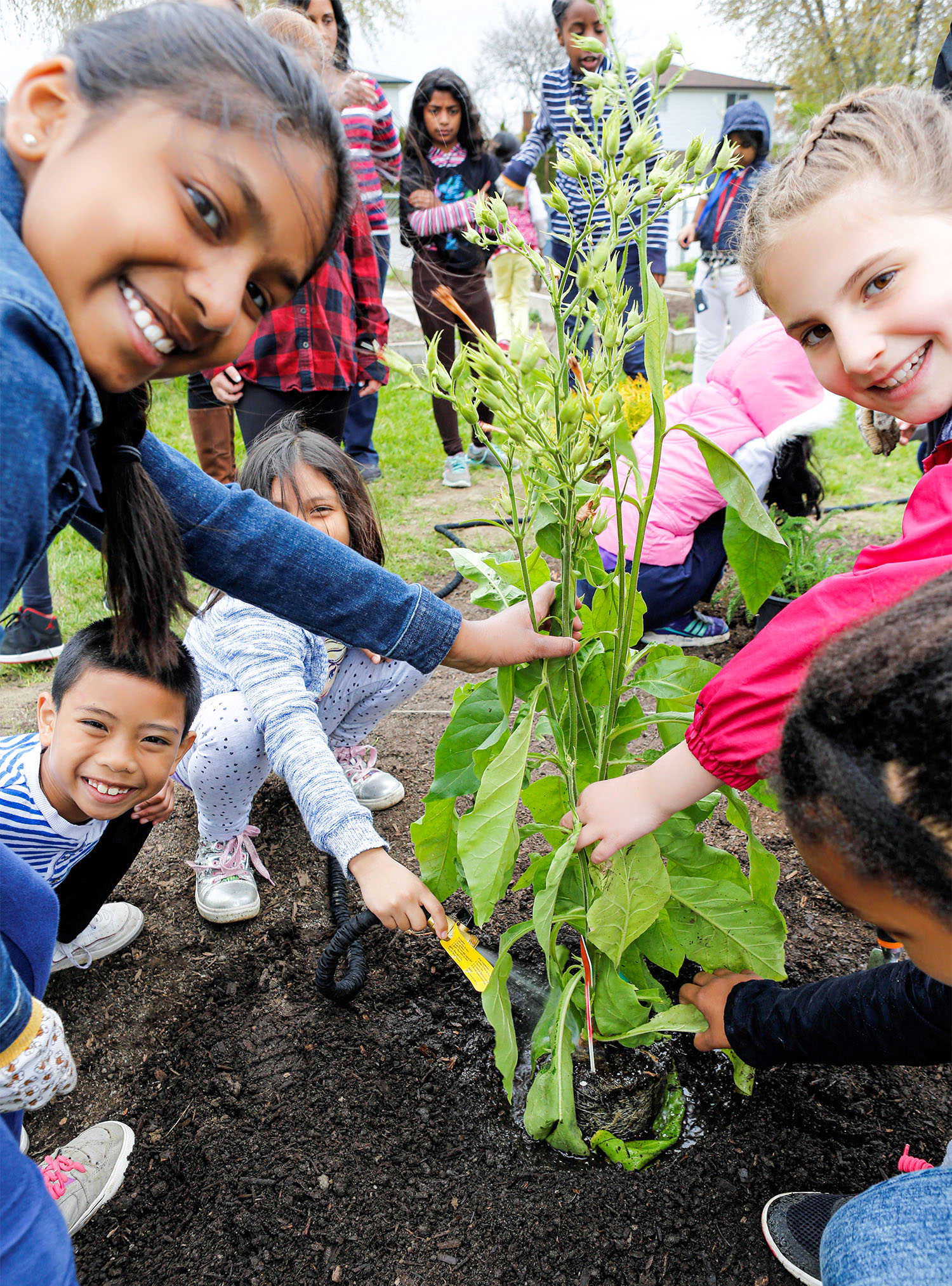ANNUAL REPORT 2020-2021
Celebrating our resilient community
Stephanie Rodrigues | Executive Director
As we look back on the 2020-21 school year, we recognize the challenges that many school communities have faced: lockdowns, screen fatigue, and burnout have often been top of mind for students, parents and educators alike. But despite the hardships of a continuing global pandemic, we are amazed and humbled to see the EcoSchools community continue to demonstrate an incredible determination to engage in environmental learning and climate action.
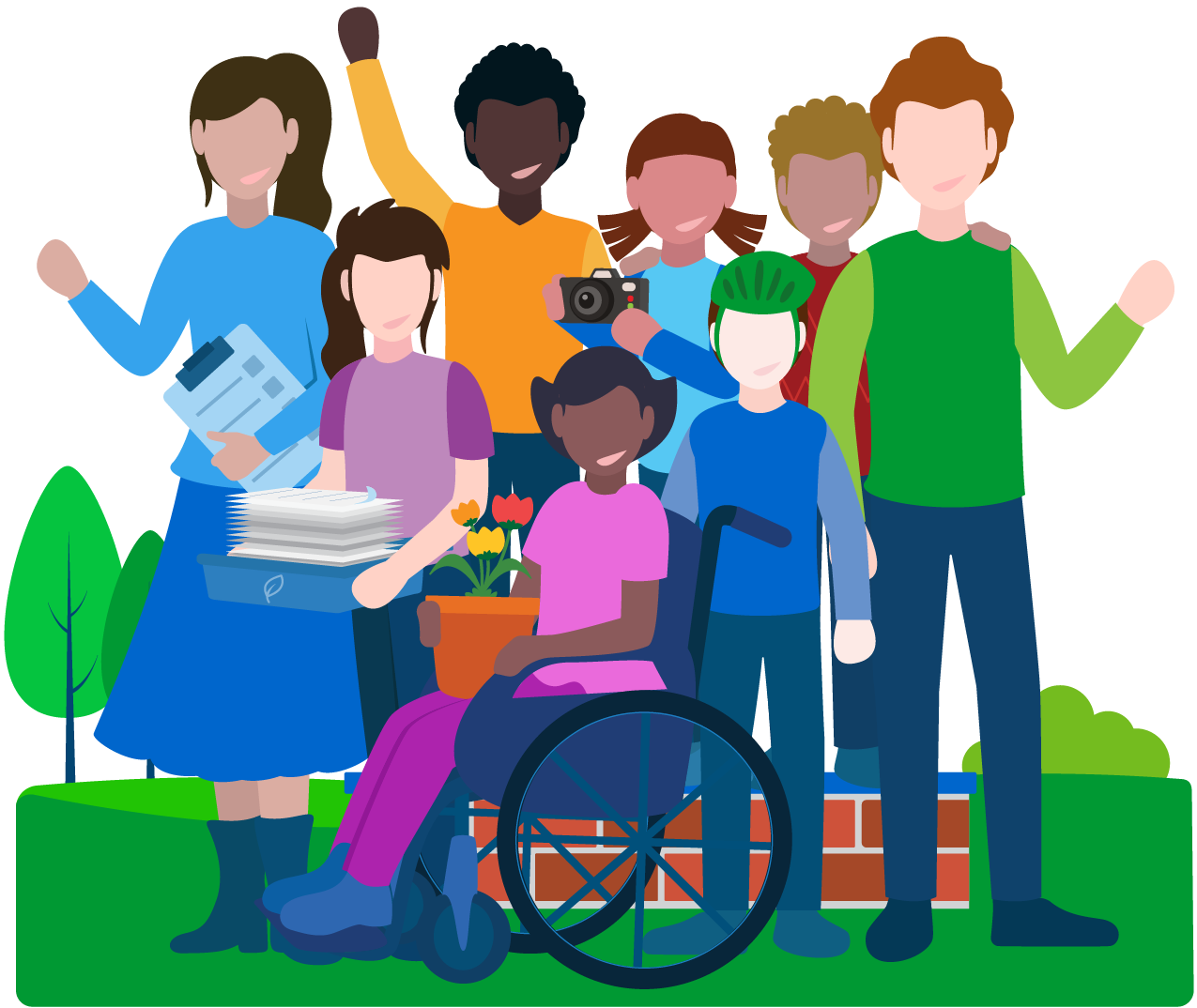
In our first year offering our program nationally, we saw participation and certification across six new provinces and territories. These include schools like Churchill High School in Winnipeg, Manitoba, who demonstrated an impressive program depth that earned them Gold certification in their first year participating in the program; École Les Éclaireurs in Fredericton, New Brunswick, who established a community food garden with peas, cucumbers, and tomatoes in their courtyard; and Mulgrave School in West Vancouver, British Columbia, whose students championed the creation of an ocean plastics lesson plan that was delivered to the broader school community. We also continue to be inspired by our Youth Advisory Committee, a dedicated group of students who are showing impressive leadership in climate action. You can read more about this remarkable group in the “A catalyst for change” section of this report.
These numbers and accomplishments tell a very clear story: our school communities, our youth, and our educators are motivated to address climate change and EcoSchools is providing a forum to strengthen this community, along with our dedicated partner organizations who amplify the amazing environmental work taking place in schools. This is the antidote to apathy, a means of coming together as a passionate community to combat climate change. Through EcoSchools, we can feel connected, resilient, and full of optimism.
As a new member of the EcoSchools team, I am incredibly excited about the future of environmental learning in Canada. Whether you’ve been certifying for years, or are just getting to know us, we look forward to working with you and building a sustainable future.
Did you know that in 2020-21…
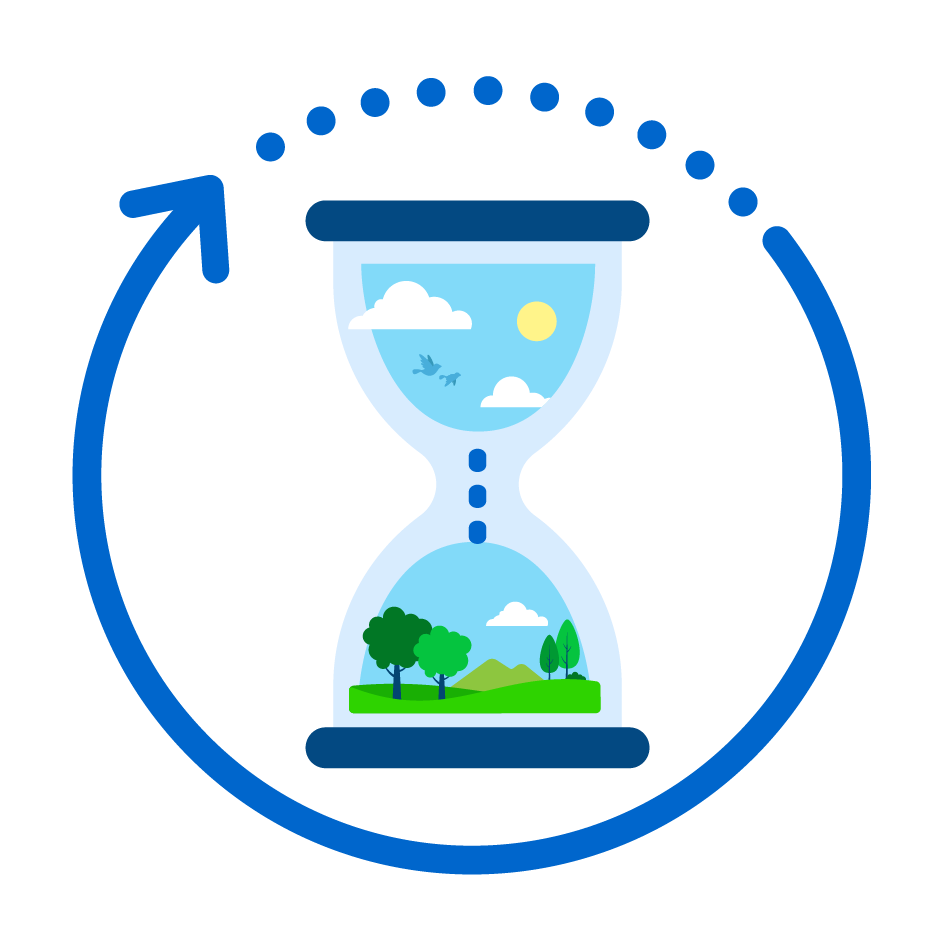
students were reached by the EcoSchools program

hours of outdoor learning took place. That's over 100 years!
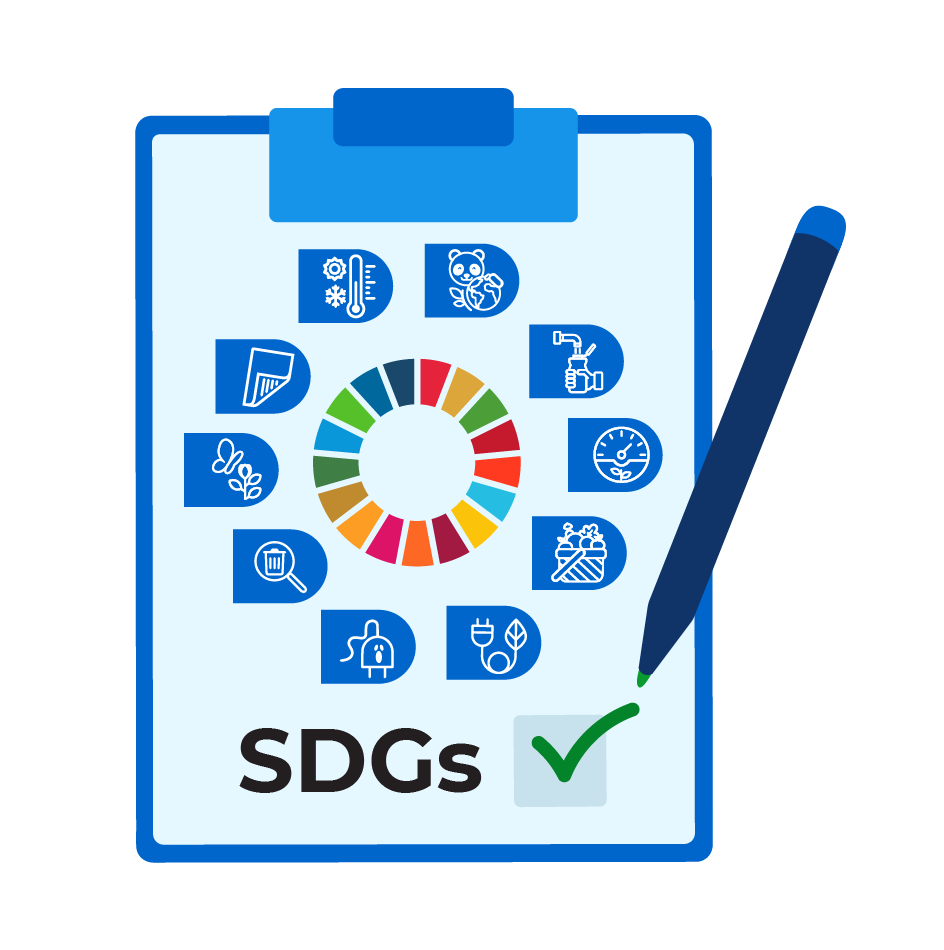
actions completed that connect to the UN Sustainable Development Goals

Over 26,000 students were engaged in waste related action and learning
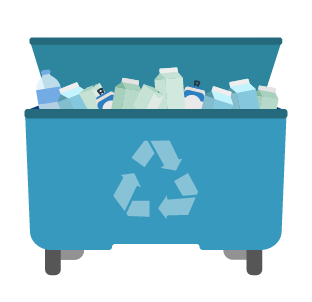
68,000+ kg of recycling was measured and recorded by schools
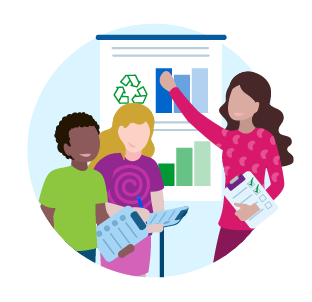
2,674 kg of waste was recycled per school (on average)
*Data collected from all schools who registered to take part in the EcoSchools program 2020-21. To learn more about how EcoSchools gathers and interprets school data, see here.
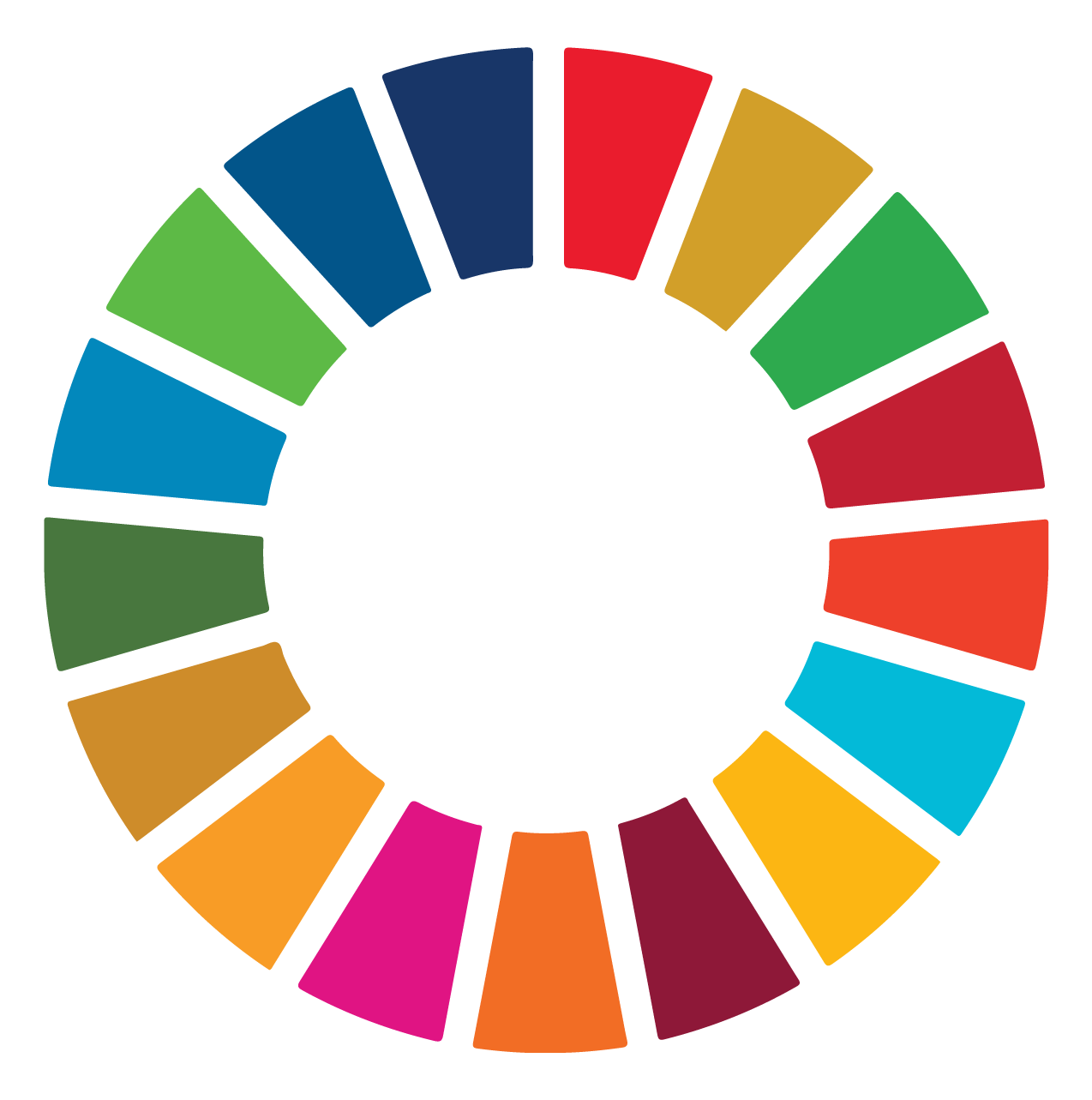
EcoSchools are supporting the UN Sustainable Development Goals
The EcoSchools program enables students and educators to build customized plans from over 45 unique environmental actions that connect to the UN Sustainable Development Goals (SDGs). These goals are identified as a key component of Canada’s 2030 Agenda National Strategy and by targeting both behaviour change and operational efficiency in schools, participation in the EcoSchools program increases student and teacher engagement, embeds environmental values into school culture, and generates tangible sustainability impacts.
In the 2020-21 school year…
students participated in the School Water Footprint action
%
of schools tracked and reduced energy use
students were encouraged to walk, cycle or roll to school
%
of schools monitored and diverted waste
schools regularly explored issues of environment, equity, and social justice during class instruction
Launching the new EcoSchools Certification Application
Certification is the backbone of the EcoSchools program, and providing a robust and easy-to-use digital platform is critical for school engagement and success in taking climate action. After three years of consultation and development with leaders across the education and environment sectors, EcoSchools Canada officially launched the new EcoSchools Certification Application (ECA) at the beginning of the 2020 school year.
This unique online platform is available in English and French and acts as a hub for program participants to build and customize their environmental action plan for the year, track their progress, celebrate their impact, and compare their journey to other schools across Canada.
The ECA’s Action Library offers over 45 environmental actions to choose from that EcoTeams can add to their annual plan. Each action is connected to the UN Sustainable Development Goals (SDGs) and contains an instructional guide, helpful resources, connections to curriculum, and certification questions in one location to make the certification process as efficient as possible for busy EcoTeams.
The Impact section
One of the ECA’s most powerful features is its Impact section, where schools can view the differences their actions are having on their environmental footprints through nine key metrics. These include:
- Energy and water use
- Student leaders engaged
- Waste diversion rates
- Measuring carbon pollution
- Hours of outdoor learning achieved
The Impact section
One of the ECA’s most powerful features is its Impact section, where schools can view the differences their actions are having on their environmental footprints through nine key metrics. These include:
- Energy and water use
- Student leaders engaged
- Waste diversion rates
- Measuring carbon pollution
- Hours of outdoor learning achieved
Available to schools year over year, these metrics enable them to track and monitor their progress over time. Additionally, schools can view the collective impact of these nine metrics for all participating EcoSchools across Canada, creating connections between educational communities that support a deeper understanding of how climate literacy can build behaviours toward protecting the environment.
EcoSchools and Arc Skoru
EcoSchools Canada partnered with Arc Skoru, a leading technology company affiliated with the U.S. Green Building Council and Green Business Certification, to determine which metrics should be included and the methodology for those calculations. EcoSchools’ and Arc’s partnership continues to ensure that the data schools see in their Impact tiles is both accurate, usable, and meaningful within the larger context of combating climate change. A detailed overview of this partnership and process is available in the report Connecting EcoSchools Actions to Greenhouse Gas Emissions.
Want to learn more about what the EcoSchools program can do for your school community? Register for a free account in the ECA and begin exploring how you can take climate action today.
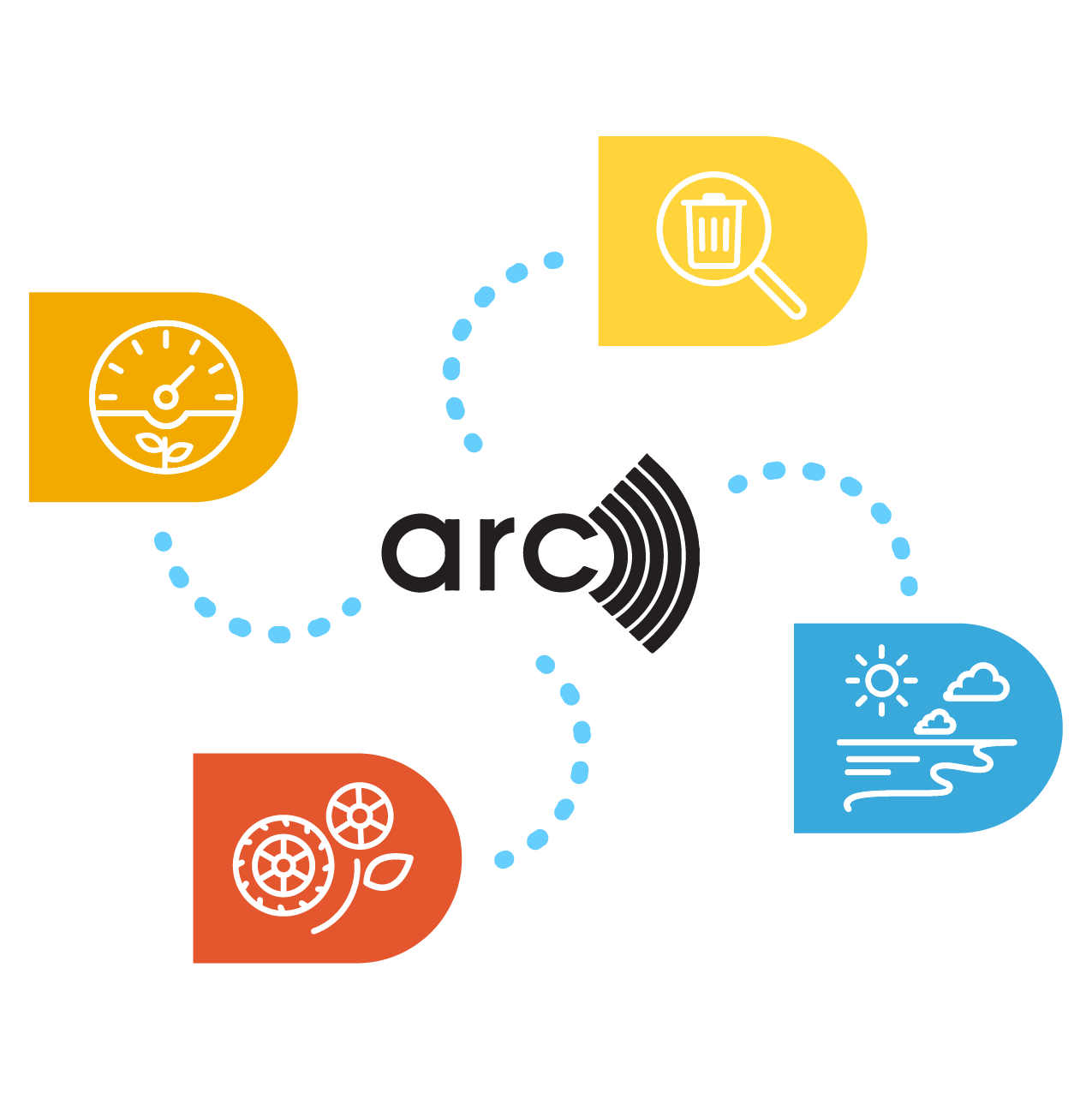
A catalyst for change
How the Youth Advisory Committee is growing the next generation of sustainability leaders
Youth are the heart of the environmental movement, but are often left feeling overwhelmed by the pressure to take action on climate change. In summer 2020, EcoSchools saw an opportunity to provide a platform for energetic students to take climate action in their communities, build their leadership skills, and offer a critical youth perspective to the development of the EcoSchools program. With support from the Ontario Trillium Foundation, the Youth Advisory Committee (YAC) was established, made up of 11 students from Ontario’s York-Simcoe region. The YAC met regularly throughout the school year and provided valuable insight on EcoSchools’ waste-related actions based on their experiences implementing them at their schools. Additionally, the group was also instrumental in shaping the EcoSchools Certification Application (ECA) through user testing.

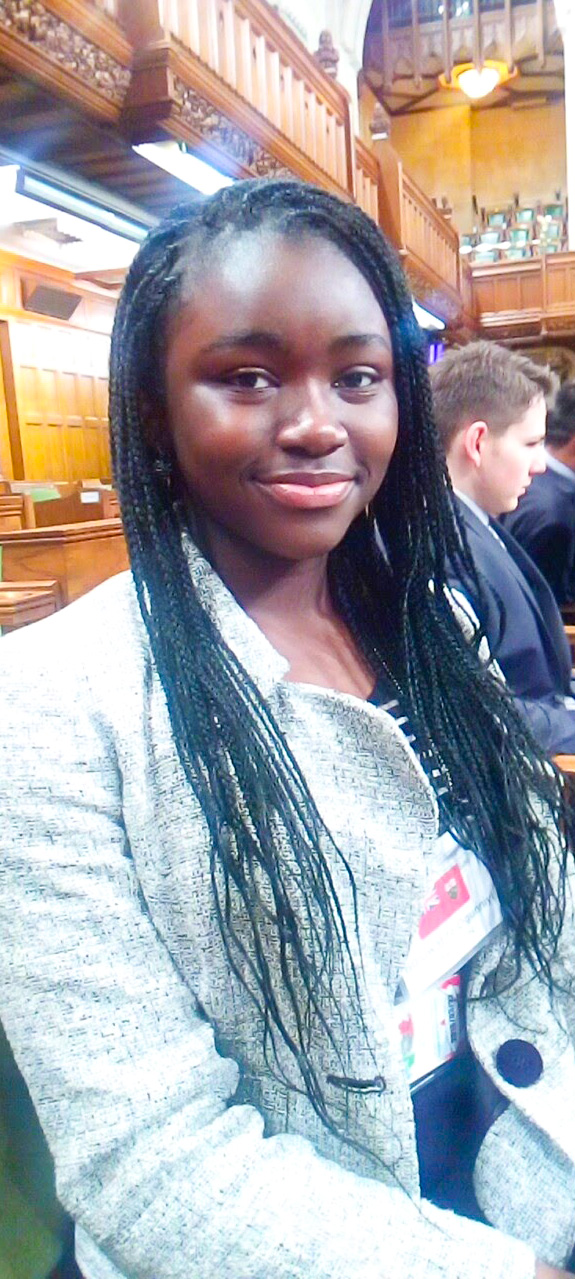
Boluwatife Ogunniyi
A key goal of the YAC is to provide student members space to build leadership skills and find community amongst their peers. Boluwatife (Bolu) Ogunniyi, a member of the 2020-21 Committee, explains why she decided to join: “At the time, I was searching for ways to get involved in environmental advocacy. My main motivation for joining [the] YAC was my drive to seek growth in all that I do. I am so lucky and fortunate to be able to experience opportunities such as [the] YAC . . . we have to seek opportunities that push us out of our comfort zone so that we can better serve our local and global community.”
Despite ongoing challenges to in-person learning and meeting, Bolu notes that being a part of the YAC helped keep her focused on environmental initiatives: “One of the biggest things I’ve learned from [the] YAC is the importance of having a community and surrounding yourself with people who feed your passion for change . . . surrounding yourself with the right people can lead you to push yourself further and to dream bigger.”
Continuing in the current school year, the YAC initiative has welcomed both new and returning members who are eager to create real change in their school communities. Though she has graduated high school and left the Committee, Bolu is keen to reflect on her experience and offer advice to those joining: “My hope for YAC members is to be able to take everything they’ve learned and to use it to become a catalyst for the change we want to see. The biggest reason youth need to get involved in advocacy is simply because we are the ones that are going to inherit [the] Earth and we get to choose and design the kind of future we want to see.”
Learn more about YAC members and their experiences in the report Youth Perspectives on Climate Action and at ecoschools.ca/yac.
EcoSchools Canada partners with the
Alberta Council for Environmental Education
Since 2005, the Alberta Council for Environmental Education (ACEE) has been a leader in supporting school communities in building environmental literacy and knowledge. In fall 2020, EcoSchools Canada and ACEE joined forces to support and amplify this work by introducing the EcoSchools certification program to Alberta educators and students, connecting them to a national movement that attracts 500,000 students annually, deepening their relationship to the environment, and celebrating their collective environmental achievements.

“Prior to our partnership with EcoSchools Canada, [many] teachers in Alberta struggled to engage their students in environmental stewardship and climate action,” explains Marie Tremblay, Senior Education Advisor at ACEE. “Teachers would often share [that] they felt isolated and lacked the expertise to initiate environmental projects with their students. EcoSchools Canada’s powerful online platform provides all the guidance and resources necessary for EcoTeams to get started, track their progress, and measure the collective impact of their actions. Thanks to our partnership with EcoSchools Canada, schools and EcoTeams now have an easy and fun way of joining the growing sustainability movement in Alberta and contributing to climate solutions.”
It’s clear that Alberta school communities have been eager to engage; notes Marie, “[In the first year of the new partnership,] 64 teachers representing 40 schools had registered with the program, far exceeding our initial target of 10 schools.” The success of this partnership also drew the attention of Calgary’s previous mayor, Naheed Nenshi, who invited newly-certified Alberta schools to present their environmental initiatives at the Calgary Mayor’s Environmental Expo in June 2021. As Marie recounts, there was an “overwhelming sense of pride shared amongst the students who presented their projects, the teachers who supported their efforts, and the mayor himself who announced school certifications and listened with great interest to the students’ presentations.”
The momentum of this partnership has carried over into the 2021-22 school year, where more than 90 schools from 22 districts in Alberta are joining over 1,200 schools in seven other provinces in pursuit of EcoSchools certification. With the tremendous continued support of ACEE, all signs point to another year of environmental excellence in Alberta schools.
We rely on supporters like you
As a registered charity, the work EcoSchools Canada does to make environmental learning and action accessible to students would not be possible without supporters like you. In the midst of the global climate crisis and movement of youth fighting for their futures, there has never been a more urgent need for environmental education, a platform for discussion of issues, and ways for youth to take positive action.
“I decided to donate to EcoSchools because having worked as a Teaching Assistant for 15 years, I know that students, presented with hands-on teaching about the environment, are enthusiastic learners and participants. I wish the EcoSchools program was included in every school’s curriculum as young people are the future stewards of the planet.”
— Beth Austin, North Vancouver, BC, Donor
Financials
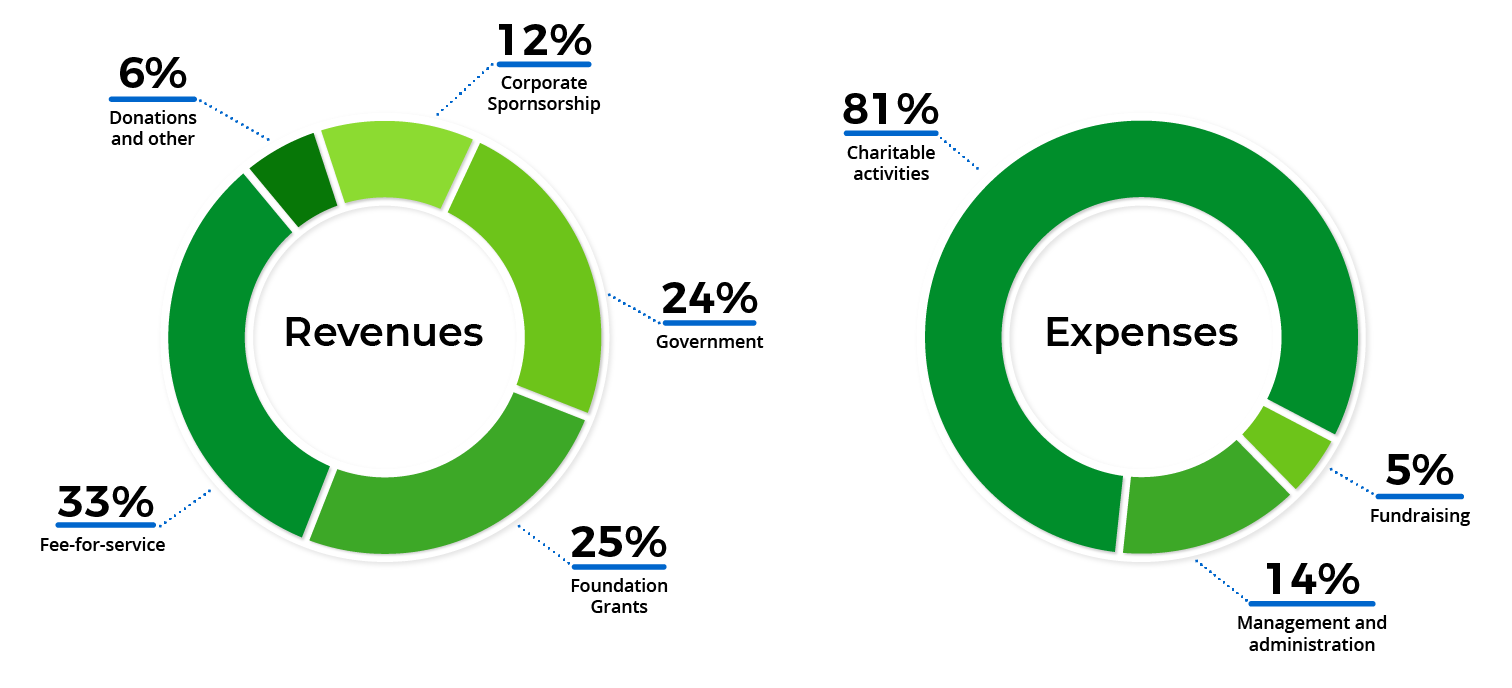
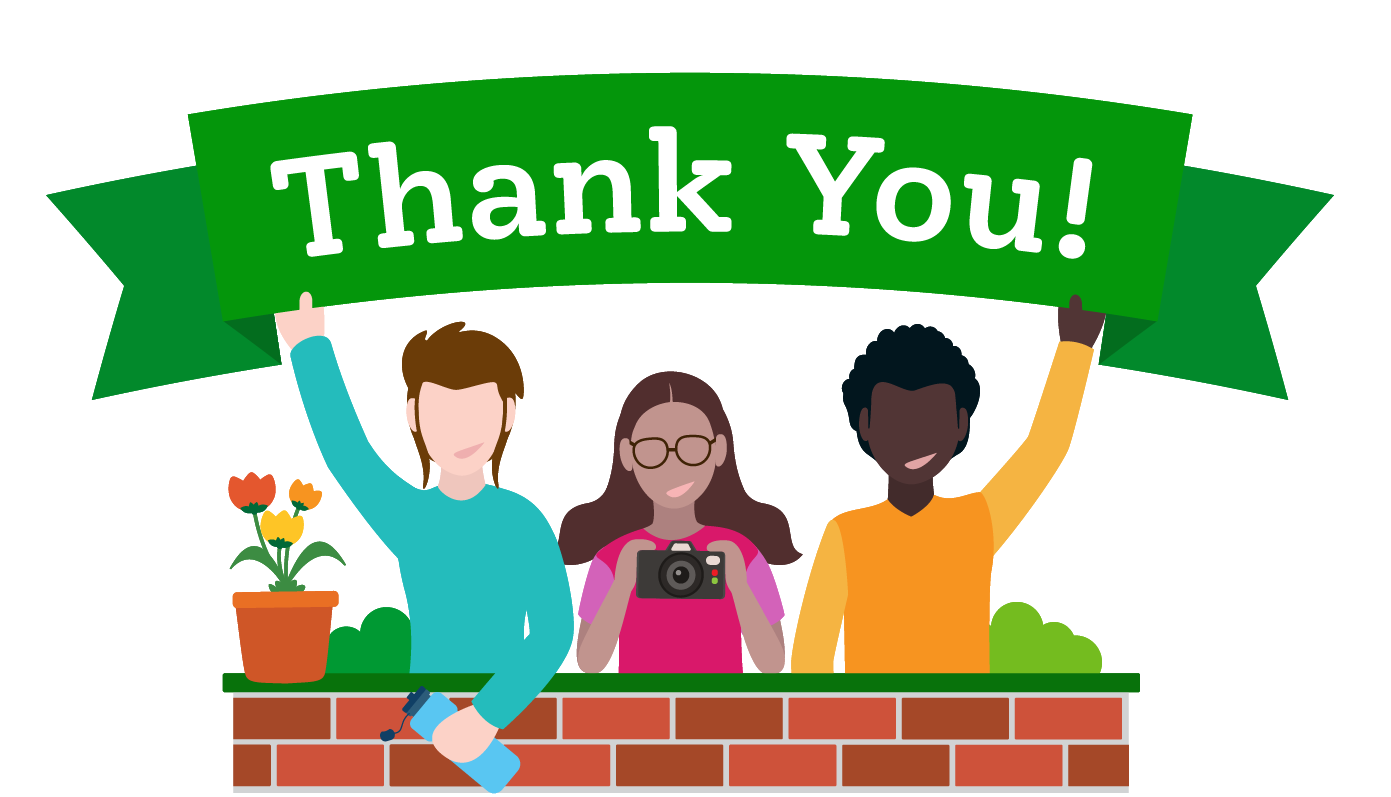
A heart-felt thank you to the following amazing groups for their generous support of the EcoSchools program in the 2020-21 year.
Supporters, Donors, and Friends
- Alberta Council for Environmental Education
- Alcoa
- Alternatives Journal
- Alternatives Media
- Arc Skoru
- Carton Council of Canada
- Cascades Inc.
- Centre for Social Innovation – Annex
- Center for Green Schools (US Green Building Council)
- Coop FA
- Earth Day Canada
- Earth Rangers
- ECO Canada
- eCycle Solutions
- EECOM
- Enviro Éduc-Action
- Environmental Defence
- etee
- Evergreen
- Finnovate
- Fondation Monique-Fitz-Back
- FoodCycler
- Foundation for Environmental Education
- Government of Canada
- GrantBook
- GreenLearning
- Green Communities Canada
- GUEPE
- Health Canada
- Hullmark
- Idée
- Keep Britain Tidy
- Louis Courteau
- Level Studio
- Moccasin Identifier Project
- Mouvement ACTES (Centrale syndicats du Québec)
- Natural Curiosity
- Nutritower
- OISE (University of Toronto)
- Ontario Trillium Foundation
- Pathway Group
- p.i.n.e. Project
- Planet in Focus
- Project Neutral
- Prosh Marketing
- RBC Foundation
- SK Films
- SodaStream
- Take Me Outside
- Taproot Foundation
- TD Friends of the Environment Foundation
- Teachers Life Insurance
- The Gaia Project
- The Peter Gilgan Foundation
- The Water Brothers
- Toronto and Region Conservation Authority
- Toronto District School Board
- Trottier Family Foundation
- The United Nations Association in Canada
- WWF-Canada
Board of Directors
-
Freda Bi
-
Michelle Boutin
-
Bala Gnanam
-
Jeremy Lin
-
Jacob O’Connor
-
Steven Pacifico
-
Stephanie Rodrigues
-
Ryan Silva
-
Martha Turner Osborne
Finance Committee
-
Freda Bi
-
Priscilla Leung
-
Belinda Mark
-
Evnah Ramiah
EcoSchools Program Advisory Committee (EPAC)
- Ron Ballentine, retired, Halton District School Board
- Suzanne Burwell, Halton District School Board
- Peggy Cheng, Toronto and Region Conservation Authority, Peel EcoSchools
- Leandra Coore, Durham District School Board
- Bobby Crowe, Halton Catholic District School Board
- Beatrice Groux, Conseil scolaire Viamonde
- Tanya Murray, York Region District School Board
- Erin Mutch, Thames Valley District School Board
- Jenn Vetter, Toronto District School Board
EcoSchools National Advisory Committee (ENAC)
- Dominique Bernier, Mouvement ACTES
- Suzanne Burwell, Halton District School Board
- Dr. Xavier Fazio, Brock University
- Shannon Harding, Clean Foundation: Inspiring Environmental Change
- Kate Henderson, Science World British Columbia
- Kristina Joshnston, GreenLearning Canada
- Geoff MacDonald, The Gaia Project
- Nancy McGee, Toronto and Region Conservation Authority, Peel EcoSchools
- Kerrie Mortin, Habitat Conservation Trust Foundation, Wild Schools BC
- Kathy Nguyen, WWF Canada
- Marie Tremblay, Alberta Council for Environmental Education
- Jenn Vetter, Toronto District School Board
Technical Advisory Committee (TAC)
- Dr. Marisol Campos-Navarrete, Sheridan College
- Katie Harper, Project Neutral
- Anisa Heming, Centre for Green Schools at the U.S. Green Building Council
- Antoine Marchal, IT Projects Manager, Coop FA
Youth Advisory Committee (YAC)
- Boluwatife
- Cara
- Catherine
- Edward
- Ga-in
- Jasmine
- Jeanette
- Julia
- Keona
- Rico
- Umaira
- Maggie Chang, Post-Secondary Advisor
EcoSchools Canada Team
Full time
- Lindsay Bunce
- Alex Campagnolo
- Ludiwine Clouzot
- Lourdes David
- Galen Drinnan
- Ryan Dyment
- Sierra Frank
- Frédérique Guay
- Clara Luke
- Theresa Ramirez
- Alex Ramos
Part time
- Maggie Chang
- Alysse Kennedy
- Rebecca Minielly
- Edvirge Prédestin
